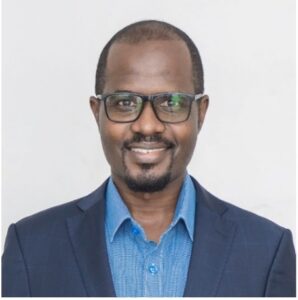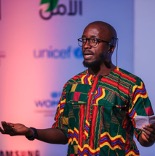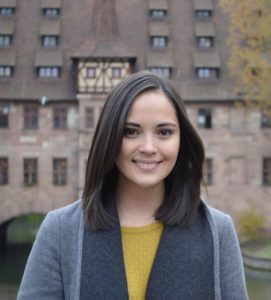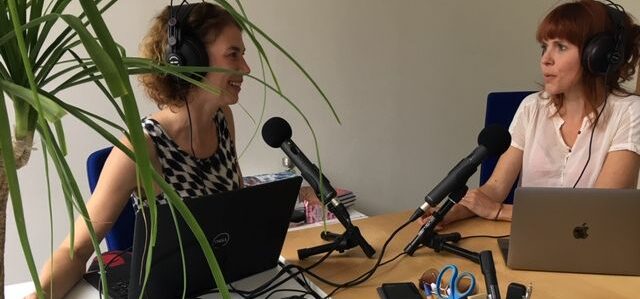June 8, 2021
Spotlight on Belgium
Transitional justice’s role in addressing Belgium’s colonial past
Belgium is the first country to establish a parliamentary commission dealing with its overseas colonial past in the Democratic Republic of Congo, Burundi, and Rwanda. The commission was established in July 2020. This happened after the public outcry about George Floyd’s murder, the surge of the Black Lives Matter movement, huge anti-racism protests, and a growing debate about Belgium’s colonial heritage, illustrated by the contestation over statues of King Leopold II, who was responsible for widespread atrocities committed under his rule.
The mission of this “special commission” is to shed a light on all aspects of Belgium’s colonial past. To this end, it appointed ten experts and four civil society representatives to write a report that was supposed to be released months ago, but which has not been made public to date. Civil society organisations have welcomed the commission as an opportunity to confront Belgium’s colonial past and to address contemporary injustices. Yet, many of them are also critical about the process, and particularly about the limited consultation regarding how this process should be designed, the selection of the experts, and the overall lack of transparency.
Our interviewee in this episode, Dr. Liliane Umubyeyi, research coordinator at Avocats Sans Frontières, elaborates on the shortcomings of the commission:
“Theoretically, it’s ambitious and it’s something that could be replicated in other countries. But at this point it’s empty. So we have to see something concrete.”
While she is cautious about too technical or theoretical an approach, she confirms that the paradigm of transitional justice is potentially an apt one in the Belgian experience:
“A commission like this offers an opportunity that, for example, criminal trials wouldn’t offer in terms of understanding the different lines of responsibility in historical injustices of going beyond individual responsibility in terms of bringing or finding proofs.”
Photo: © CADTM
May 7, 2021
Spotlight on the Democratic Republic of the Congo
Prospects for victim participation in the new Truth and Reconciliation Commission
In this episode, we put a spotlight on the Democratic Republic of Congo where a truth and reconciliation commission (TRC) was established in 2003, in an attempt to bring an end to hostilities and pave the way to democratization. However, the TRC was short-lived, leaving victims of mass atrocities with fewer avenues for the right to truth. Recently, the government of President Felix Tshisekedi has shown willingness to support the installment of a new TRC and to set up a reparations fund for victims of mass atrocities. Marit de Haan and Christian Cirhigiri speak with Gentil Kasongo, researcher at Impunity Watch in the Great Lakes Region of Africa, who shares what this new momentum for truth-seeking means for the overall field of TJ in the DRC and for the participation of victims of mass atrocities.
Gentil Kasongo is a researcher at Impunity Watch and TJ practitioner from the DRC. He holds a Master’s in Human Rights Law from the University of Cape Town and a law degree from the University of Goma. With seven years of researching human rights in the region, Gentil has worked with civil society actors and victim groups in the North Kivu and South Kivu provinces, providing training of trainers on TJ and victim participation.

Christian Cirhigiri is a PhD researcher at the Human Rights Center of Ghent University. His research project focuses on victim participation in the TJ pillar of Guarantees of Non-Recurrence in the DRC.

Photo on the left: © Debout Congolaises
March 31, 2021
Spotlight on Sri Lanka
Accountability and the Human Rights Council
Sri Lanka’s present is haunted by memories of the island’s decades-long civil war, which ended just over a decade ago. The war was mainly a clash between the Sinhalese-dominated Sri Lankan government and the Liberation Tigers of Tamil Eelam (LTTE) insurgent group, the latter of which had hoped to establish a separate state for the Tamil minority. Although the Civil War ended in 2009, the current situation in Sri Lanka has only partially improved. A large portion of the Tamil population remains displaced. While there are fewer political and civil rights issues, instances of torture and enforced disappearances persist even in recent years. The Sri Lankan military still occupies predominantly Tamil areas designated as “high-security zones,” though to a lesser extent than during the war. The entrenched impunity for the deaths of tens of thousands of Tamil civilians in the final stages of the war in late 2008 and 2009 in what the United Nations called a “bloodbath”, remains unaccounted for.
In January this year, the Office of the High Commissioner for Human Rights (OHCHR) released a damning report on the human rights situation in Sri Lanka. The report tracks Sri Lanka’s current, deteriorating human rights situation, identifying developments that “risk the recurrence of… the grave violations of the past.” In March, the HRC adopted a new resolution on Sri Lanka, ramping up international monitoring and scrutiny of the human rights situation in Sri Lanka, and the new resolution also mandates the UN human rights office to collect, consolidate and preserve evidence for future prosecutions and make recommendations to the international community on steps they can make to deliver on justice and accountability.
In this episode, Tine Destrooper and Sangeetha Yogendran speak with Archana Ravichandradeva, a Canadian lawyer and Senior Advocacy Officer with PEARL, People for Equality and Relief in Lanka, a women-led NGO concerned about the situation in Sri Lanka. In her role at PEARL, she works to build connections with government officials to advocate for justice and accountability on the island. We discuss accountability and transitional justice efforts in Sri Lanka, and in light of developments before the Human Rights Council.
Sangeetha Yogendran was a Research Fellow with Justice Visions, examining victim participation in transitional justice processes in Cambodia.

Archana Ravichandradeva is a lawyer practicing labour and employment law in Toronto, and is Senior Advocacy Officer for People for Equality and Relief in Lanka (PEARL).

Photo on the left: Sri Lankan ethnic Tamil women sit holding placards with portraits of their missing relatives as they protest outside a railway station in Colombo, Sri Lanka. © AP Photo/Eranga Jayawardena, 2015.
February 19, 2021
Spotlight on France
What the Charlie Hebdo trial could have learned from transitional justice
In 2015 terror attacks against Charlie Hebdo and in a Jewish supermarket paralyzed Paris. All three attackers were killed in standoffs with the police on 9 January 2015. Five years later, during an emotional three-month trial, victims were given a venue to share their testimonies as civil parties. The trial resulted in guilty verdicts against all 14 accused.
In this episode, we examine whether it makes sense to look at these trials through the lens of transitional justice and how doing so allows for lesson learning and for organizing the upcoming Bataclan and Nice trials in a more appropriate way.
Our interviewees in this episode, Kerstin Bree Carlson and Sharon Weill argue that one of the most remarkable things about this trial was that it worked like two processes running in parallel, barely connected, in what they argue was “a platform for the victims, but a weak criminal case”. During the “truth commission” element of the trial, victims recounted the horrors of the attacks. The criminal responsibility element of the trial, on the contrary, seemed to be much less linked to these events, with those on trial being markedly far removed from the facts recounted by the victims. This offers a warning for future terror trials, but also suggests that there may be things to learn from the domain of transitional justice where both criminal justice, truth-telling, and accountability also have to be navigated in complex settings.
How can experiences from the domain of transitional justice help consolidated democracies to better deal with terror attacks and other societal challenges they are facing? And what does it mean for the domain of transitional justice to include these aparadigmatic cases?
Photo on left: © Elya/Wikimedia
January 21, 2021
Spotlight on Guatemala
Dismantling peace and reparations
In July 2020, President Alejandro Giammattei issued a series of decrees closing down several institutions created to comply with the Peace Accords signed by the Guatemalan State in 1996. One of these decrees: a) closes the Peace Secretariat (SEPAZ), an institution tasked with managing the National Program of Reparations (PNR) for the victims of the armed conflict, and b) orders the transfer of the PNR to the Ministry of Social Development. Neither victims nor civil society organizations were included in the decision-making process that went behind these decrees. Several legal actions have been filed by victims and civil society to abrogate them.
In this episode, Tine Destrooper and Gretel Mejía talk to Rocío Herrera, a Guatemalan human rights lawyer working at the Human Rights Law Firm, a Guatemalan NGO that provides legal support in one of these actions. She addresses the implications of the decrees on victims’ access to an adequate, effective, and integral reparation, and on the realities of working with victim communities in pandemic times.
Rocío highlights the resilience of Guatemalan people and talks about other intersecting topics, such as the role of strategic litigation to overcome setbacks to transitional justice, and how actors, such as academic centres, can contribute to these interventions. One example are amicus curiae briefs, which explain human rights standards and obligations to the court.
Rocío Herrera is a human rights lawyer at the Guatemalan Human Rights Law Firm, where she works in transitional justice and strategic litigation.

Gretel Mejía is a PhD Research Fellow with Justice Visions. Her research is focused on victims’ experiences of participation in truth and justice processes in Guatemala.





